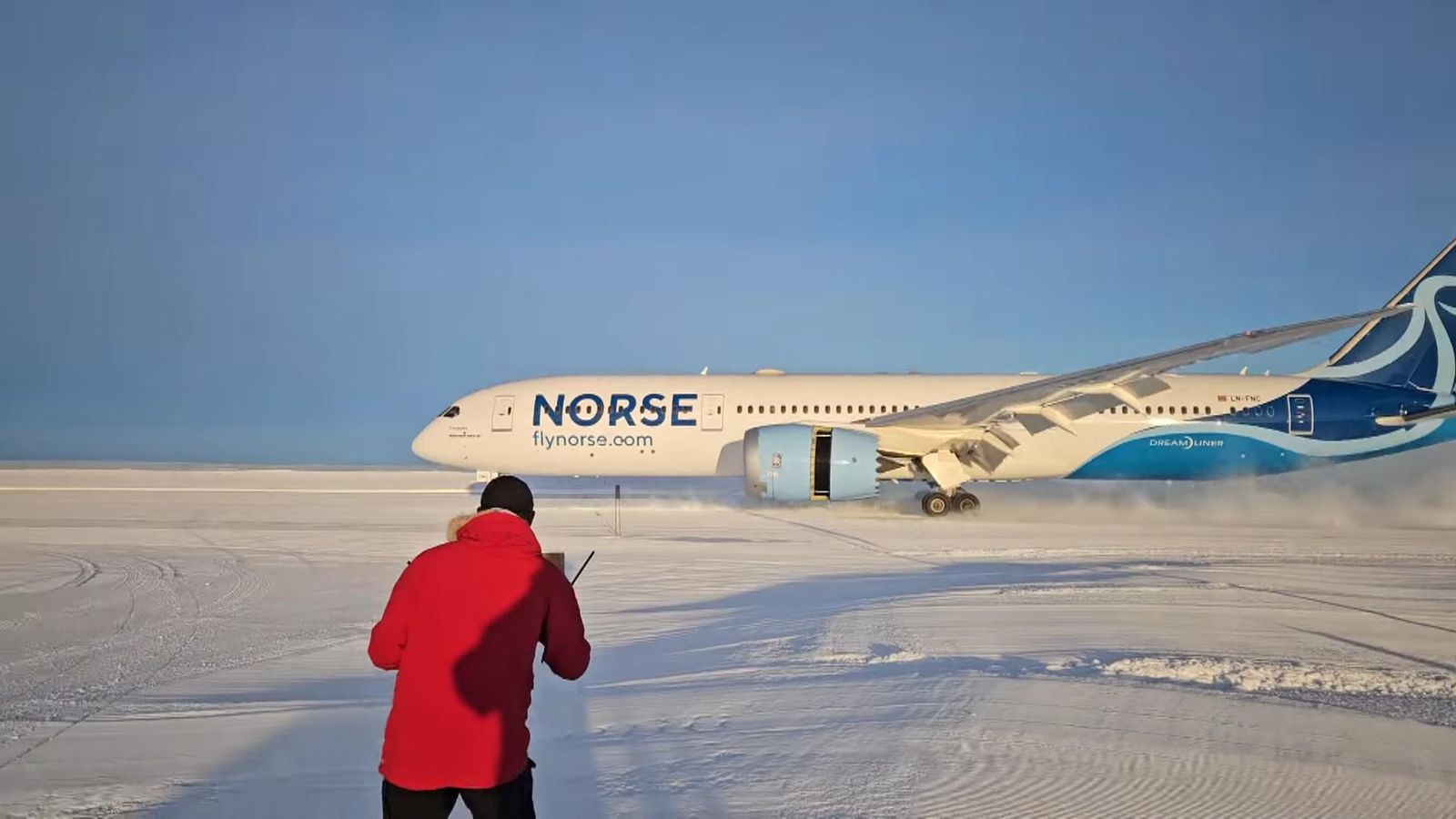- cross-posted to:
- [email protected]
- cross-posted to:
- [email protected]
A team of scientists broke new ground when a plane capable of carrying more than 300 passengers landed in Antarctica, with aviators hailing it as a world first.
The plane, a Boeing 787 Dreamliner, successfully slipped down in Troll airfield on Wednesday night, while basking in Antarctica’s all-day summer sunlight.
Carrying a 45-strong team made up of researchers and staff from the Norwegian Polar Institute, the organisation said they managed to bring 12 tonnes of research equipment.
…
“The most important thing is the environmental benefits we can achieve by using large and modern aircraft of this type for Troll,” Ms Brekke said.
“This can help to reduce total emissions and the environmental footprint in Antarctica.”



After all, why not? Why shouldn’t we ruin the last fucking place on Earth you can at least pretend humans haven’t fucked up yet.
They aren’t commercializing it, it just means they will require fewer flights to get scientists and their equipment down there. And the new plane is more efficient than the older ones they used.
If you think humans aren’t already on Antarctica, I’ve got some bad news for you
You wouldn’t have needed to even read the article since OP copied this part into the post. Please, read before commenting.
If a plane can land with lots of scientific personnel on board, it can also land with tourists on board. And since it’s one big plane instead of 20 smaller ones, travel will get cheaper. It’s all but inevitable that this boosts Antarctica tourism.
Is there too much tourism in Antarctica? Yes.
Is this it? No.
If you think that the research institute operating the airstrip wants to have a tourist resort next door to their Antarctic research base, I do not know what to tell you.
You’ve never heard of the term lip-service have you? How about green-washing? If you honestly think there is anything environmentally-friendly about man’s occupation of Antartica then I honestly don’t know what to say.
So all the environmental science done there is somehow not good for the environment?
While there’s definitely already too much tourists, about 90% of people visiting inland Antarctica are still scientists and their support staff.
Honestly, I’d put most of that could be done autonomously and remotely now. Both poles are of such sensitivity that pollution there is much worse.
Mars rovers are expensive as fuck, their capabilities are basic at most when compared to humans, and even then they aren’t built to withstand snow and ice. Research institutes don’t send people to the ass end of the world just because they can.
Remote sensing is great, but a considerable portion of the work done in the Antarctic is to benchmark the data we get from Earth observation satellites so we can develop those capabilities further. And even then, there’s only so much that can be done with satellites.
That’s not how climate change works.